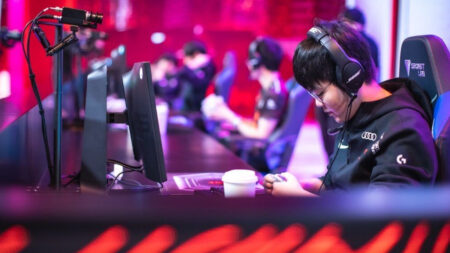The exponential growth of esports in the past five years has led every gamer to dream about the coolest job in the world — playing video games for a living. However, the level of stress and pressure in professional gaming is often something many aren’t prepared for. Unique variables and numerous stress-inducing factors in esports heavily affect players, and this often leads to burnout.
Esports psychologist Mia Stellberg works with several major esports teams around the world, including OG, SK Gaming, and ENCE.
With 19 years of experience and a license in both psychology and psychotherapy, Stellberg says that the stress and burnout in esports are unlike any she’s encountered in other fields.
Gaming 24/7 is more work than play
Many external and internal factors contribute to esports burnout. One of the most obvious is the stressful, hectic lifestyle of the profession. While playing video games all day might sound like a dream come true, the reality of pro gaming can be more of a nightmare.
Depending on the game, professional gamers will clock in between eight to 16 hours a day of practice. Competitive gaming demands top performance in every single game, so this means that esports athletes need to function at their highest levels every single day of their training week.
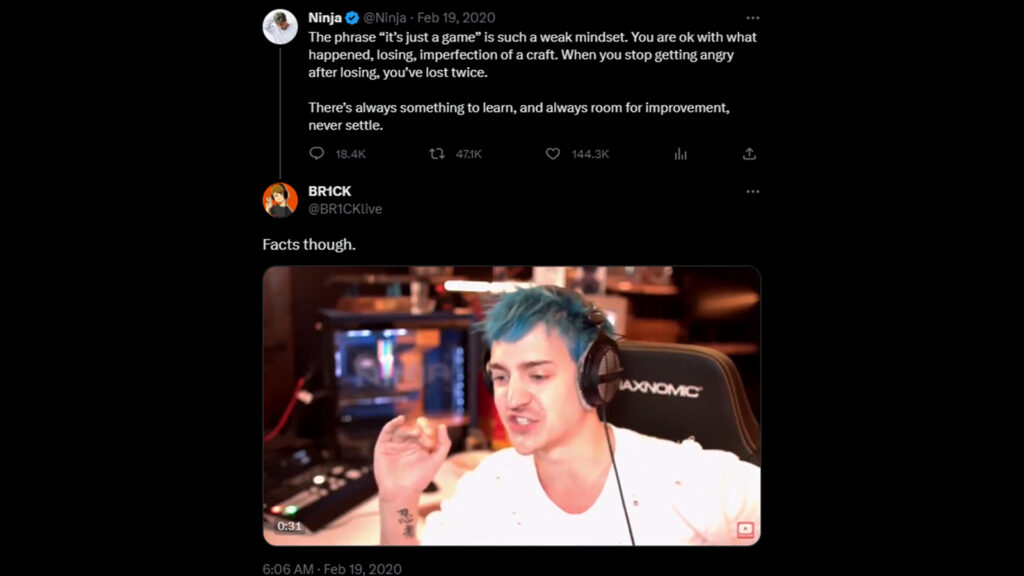
“You don’t have that kind of schedule in any other sport,” Stellberg told ONE Esports. “You have a game at 10 a.m. then you cool down for 20 minutes, then you have another one and another one for the rest of the day. It’s really challenging.”
Stellberg emphasizes quality over quantity when it comes to practice hours for esports. “Every time when you’re playing, you’re teaching your brain. And you should always teach your brain with high-quality execution skills. Your mental side is very different when you’re playing five hours a day with a break versus ten hours straight. It’s incredibly tough to stay focused for ten hours straight. Towards the end, you’re getting stressed, you’re getting agitated, you’re getting frustrated, you’re getting sloppy. Why would you practice being sloppy, frustrated, or unfocused?”
Age isn’t just a number
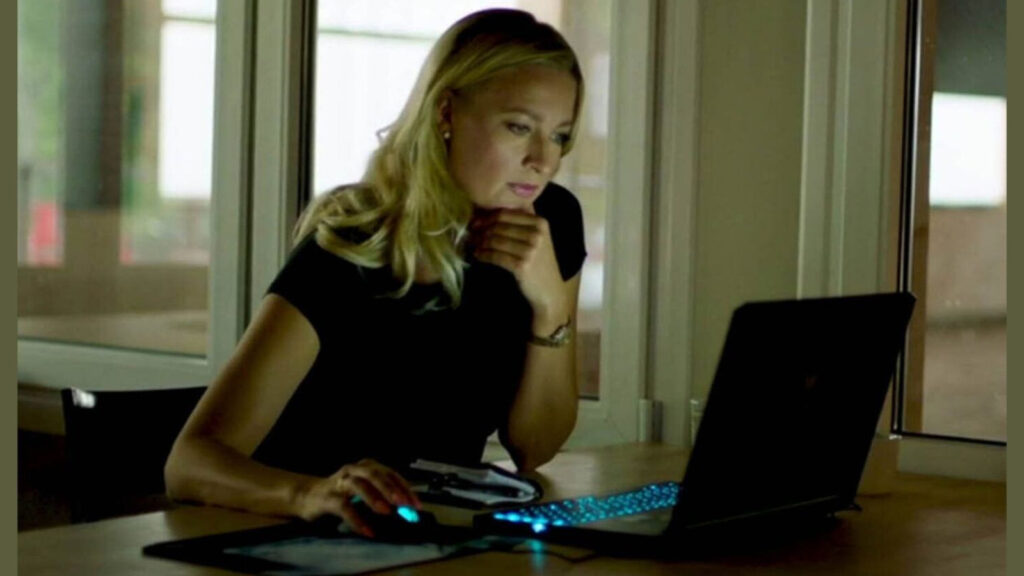
According to Stellberg, esports players reach their prime at “24 or 25 years old”, at which point they might have already been playing professionally for 9 to 10 years. The average age of an esports pro compared to their physical sports counterparts is lower by about 8 to 7 years.
It’s not uncommon to see athletes in their teens get signed to major organizations and compete in international leagues. For example, Victor “Lil Poison” De Leon is the youngest esports player on record, having competed professionally at the age of just six. Tekken 7 player Alexandre “AK” Laverez started winning championships at the age of 11. One of the best StarCraft 2 players, Cho “Maru” Seong-ju, made his professional debut at 13 years of age, and Bren Esports’ Karl Gabriel “KarlTzy” Nepomuceno was just 15 years old when he brought home a gold medal in the 2019 SEA Games for Mobile Legends: Bang Bang.
The potential of these esports prodigies is exciting, but it also leads psychologists like Stellberg to wonder how much of their developmental years are sacrificed in order to go pro at such a young age. With an early start in such a fast-paced and high-performing field, an early retirement follows accordingly.
Starcraft player Lee “Flash” Young Ho and Michael “Shroud” Grzesiek of CS:GO fame both retired at 23. Astralis captain Lukas “gla1ve” Rossander cited burnout and stress as reasons for taking a sick leave from Astralis at the age of 26, and League of Legends pro Jian “Uzi” Zihao retired at 23 due to health reasons.
Stellberg says she always emphasizes quality training for young esports athletes to help their development in adulthood, and not just in-game. An esports organization will have an important impact on a young player’s life, and it’s a big responsibility to ensure holistic development for teens and young adult.
“The teams that I’m working with, all of them have a nutritionist, physiotherapist, personal trainers, we have chefs, we have people regarding the performance… We need to support these players more and we, as an organization, always take great pride in the fact that our staff is well taken cared of.”
It’s not just a hobby
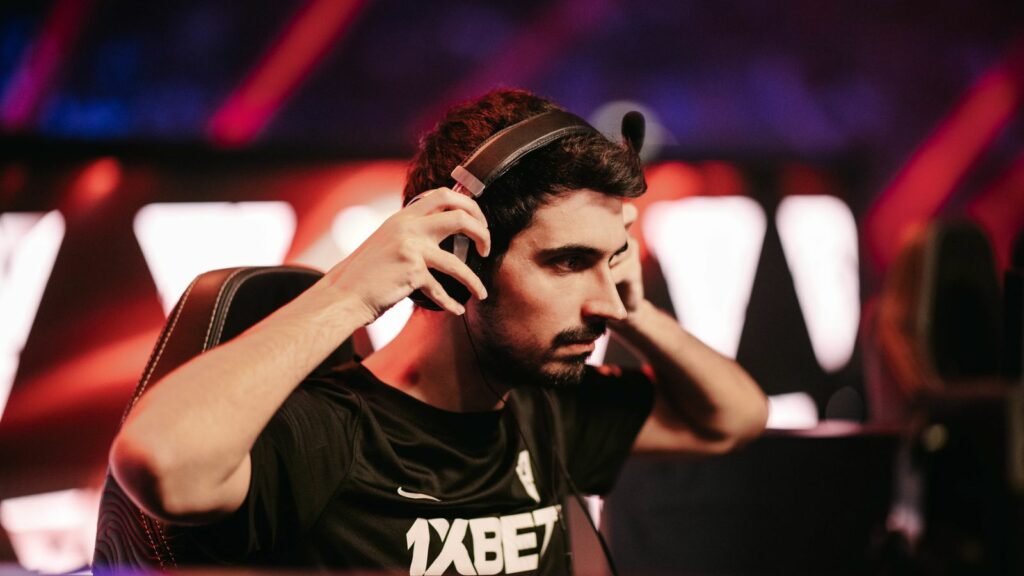
While the esports industry is growing at a rapid rate, it’s also still young and fresh from its “just a hobby” days. This affects its transition into a viable career, but not without growing pains. With most large organizations still figuring out the long-term career path of esports and the relatively young age of the players, there often isn’t enough understanding yet of what it means to have a career.
All esports athletes today started out as gamers playing at home, where there isn’t a professional structure or a clear authority figure, like a coach. Code of conduct, social dynamics, and even personal branding aren’t requirements while playing from the comfort of one’s home. When a player is eventually signed, there’s a big chance these things are completely novel concepts to them.
“I’ve experienced in my career, many times, that we have signed a young talent who has never worked anywhere, who has never belonged to any team, who has never had any kind of structure,” Stellberg shared. “For them to learn overnight, that suddenly you’re followed, people are expecting you to win, you need to do this and that, communicate, function within the team… You have a coach and analyst who are constantly peeking at what you’re doing. Telling you, ‘You should play like that or you should react like that, or have that different approach’, I think that’s the most significant difference in gaming compared to traditional sports. We as organizations many times are the first ones to facilitate a certain kind of environment. This shift can be stressful to the players.”
This is where esports psychologists like Stellberg can help players succeed, although it’s something the industry is still figuring out.
“In the long run, we become more professional, more structured. We do have a system. I’m creating a system that provides success, but it takes some time to establish that.”
Work-life balance
It’s ideal in every job, especially since work from home has become the norm. However, this can be challenging for pro players, especially those who also stream.
Streamer hours can be long and draining, and the barrier between professional and private is likely to give way. As more and more players invite their followers virtually into their homes through streams, there’s often the obligation to be ever-present for fans. Fan interaction and community building is part of an esports athlete’s professional branding, but it can be a cause for concern when constant performative action for one’s fans eats into energy and mental space that should be reserved for training.
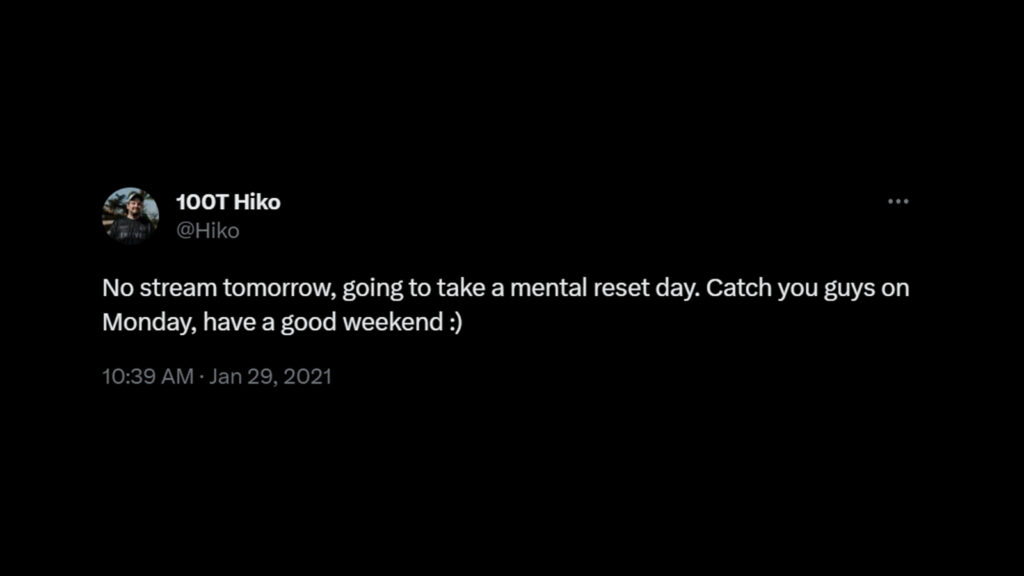
“Players should balance their professional life with a private life,” says Stellberg. “Your player personality is a different person than who you are privately. Quite often, gamers mix this. They think that they are professional 24/7… So, I’m always trying to remind players of that as well. What do you want to do with your personal life? Do you have a personal side, the private part of your life?”
Tough love from a tough crowd
Last but most definitely not the least, it’s an incredibly tough crowd. There’s a pressure to deliver nothing less than a perfect performance every single game, even if it’s just a casual stream. To be defined by your last game is a heavy burden to carry, and this is enough to make even the best players struggle.
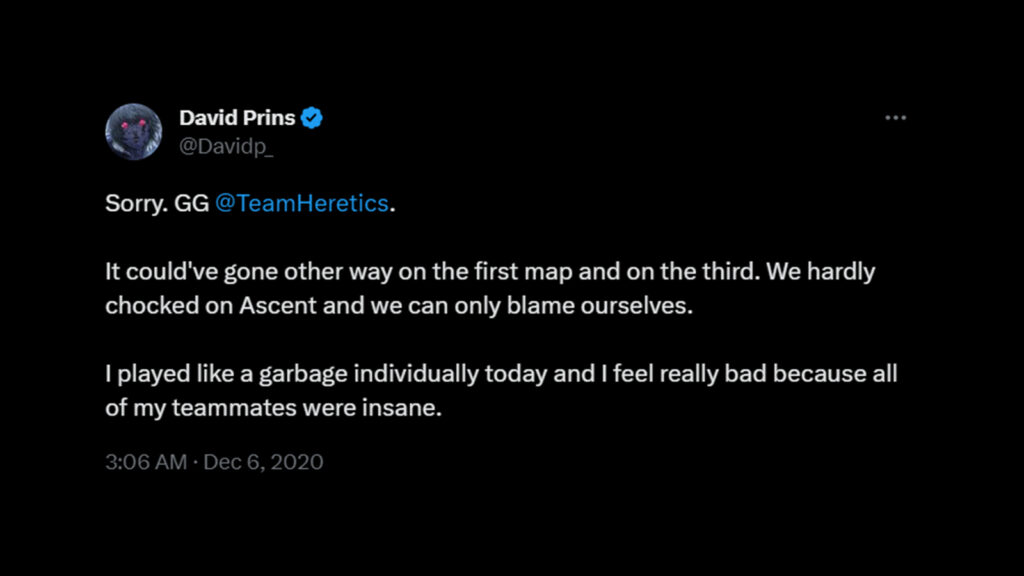
“You have to have the ability to be in the bubble,” Stellberg advises her players. “Just concentrate on what’s going on here instead of what the crowd is saying or what people might say on social media if you lose. If a mistake occurs, you can come back from that disappointment.”
Unfortunately, not everyone bounces back. With the added layer of social media, hate and negative comments are amplified ten-fold. Pro players, as online personalities, are scrutinized so much and some just choose to leave the professional scene for a life less complicated.
The growing concern of esports burnout has made more organizations invest in esports psychology and mental health for their players. Professionals like Stellberg give esports career paths more longevity and help players adjust to the mental, physical, industrial, and cultural changes that come with the job.
She encourages organizations to offer more and more holistic support for esports athletes and staff workers, and quality training for esports athletes over quantity. She hopes that eventually the success of an esports team will also be measured in sustainable careers and healthy workplaces, rather than just medals and trophies.
READ MORE: What to expect when you become an esports pro, by Chawy
